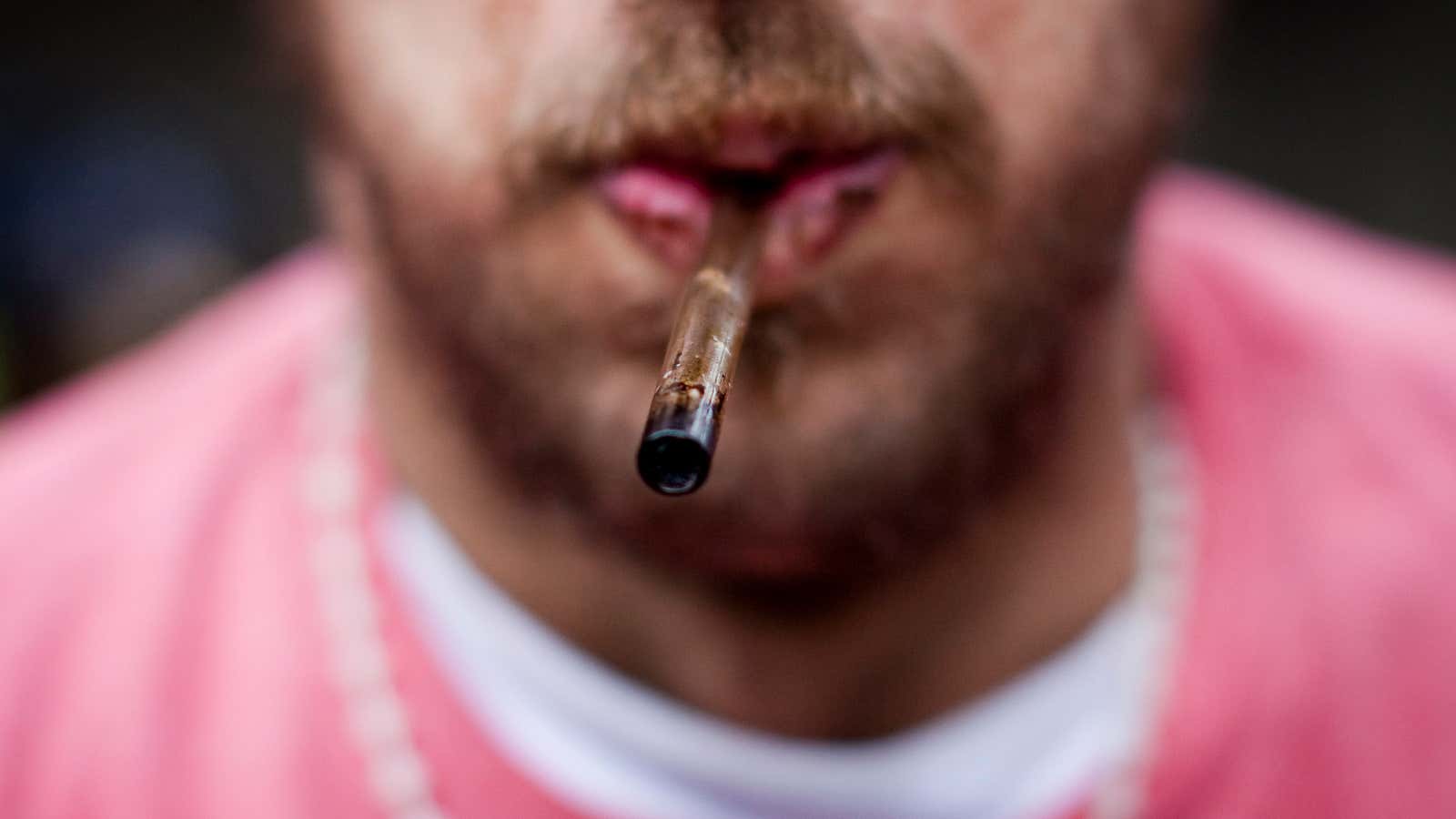The last time the UN General Assembly met to talk drug policy in 1998, its goal was to achieve a drug-free world by 2008. At its current gathering on the issue, which started in New York on April 19, the member countries are settling for the more modest expectation of “a society free of drug abuse,” and they’re not setting any deadlines.
The international drug landscape has changed a lot since that last meeting. While marijuana is now legally sold in stores in places like Colorado and Washington state, an escalation in the war on drugs in countries such as Mexico has resulted in tens of thousands of deaths.
Many drug experts around the world believe that the UN’s drug-policy framework, which is more than 50 years old, is in urgent need of revision. The current meeting was moved up two years in response to pleas by Mexico, Colombia and Guatemala to address the problem sooner.
“Vested with the moral authority of leading the nation that has carried the heaviest burden in the global war on drugs, I can tell you without hesitation that the time has come for the world to transit into a different approach in its drug policy,” Colombian president Juan Manuel Santos wrote in a Guardian op-ed published over the weekend.
The UN appears to be coming around to that view—very slowly. With a resolution adopted at the start of the meeting, dubbed UNGASS 2016, for UN General Assembly Special Session, the world’s countries are shifting their approach to emphasize public health as a key element in the fight against drugs.
Aside from prevention, the document backs the use of harm-reduction programs to manage drug addiction, such as treating heroin addicts with other opioids and offering them clean syringes.
The resolution also addresses the high rates of incarceration of low-level drug offenders, another criticism of current policies, by promoting “alternative or additional measures with regard to conviction or punishment.” And it commits to development programs to eradicate poverty and other social ills that can contribute to people’s involvement in the first place with drugs or the drug trade.
Still, UN members are not ready to abandon the 1961 convention that governs drugs worldwide, which bans the production and use of substances such as opium, cocaine and pot, for anything other than medical and scientific purposes. The topic of pot legalization is noticeably absent from the newly adopted document.
Many experts are disappointed, saying the old agreement needs a complete revamp to confront today’s realities. And while UNGASS 2016 was meant to provide the international community a space to debate and agree on the best approach to handle drugs, the resolution was hammered out behind closed doors last month, they complain, and voted on before any discussions during the three-day conference.
Other advocates of ending drug prohibition, including UK business magnate Richard Branson, see the gathering as an opportunity to at least showcase the growing disagreement among countries on how to handle illegal drugs, and spur discussion. Even if the conversations within the General Assembly skip over important topics this go-around, a series of events organized alongside UNGASS will be addressing them. They include talks on the eradication of the death penalty for drug-related crimes, as well as marijuana legalization.
